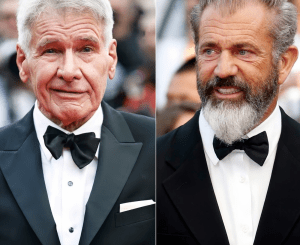Bruce Lee is not only a martial arts legend but also an iconic figure in the film industry, particularly in martial arts films. His career in cinema not only profoundly influenced how martial arts were depicted on screen but also contributed to reshaping the global film industry. Bruce Lee’s relationships with people in the martial arts film industry, from directors and fellow actors to producers, helped create an unmatched legacy and had a lasting impact on generations of filmmakers, martial artists, and audiences worldwide.

Early Beginnings and Relationships with Directors
Bruce Lee entered the film industry at a young age. Before becoming a global superstar, he appeared in various television shows and films in Hong Kong. However, it was his role in The Big Boss (1971) that truly garnered attention. His relationship with director Lo Wei, who worked on this film, was somewhat strained due to creative differences. Lo Wei, while working with Bruce, imposed restrictions on how Bruce could showcase his martial arts, which led to tensions between the two.
After leaving Lo Wei’s production company, Bruce Lee found an ideal collaborator in director Robert Clouse, who directed the groundbreaking Enter the Dragon (1973). The relationship between Bruce Lee and Robert Clouse was a prime example of the fusion between martial arts prowess and cinematic direction. This collaboration not only solidified Bruce Lee’s status as an international icon but also marked a new era in martial arts cinema. During the making of Enter the Dragon, Bruce Lee was highly involved in choreographing fight scenes, ensuring that the film portrayed not only thrilling action but also the core principles of his martial arts philosophy, Jeet Kune Do (The Way of the Intercepting Fist).

Relationships with Fellow Actors
Throughout his film career, Bruce Lee developed strong relationships with fellow actors, many of whom were also martial artists. One of the most notable relationships was with Chuck Norris, his on-screen rival in Way of the Dragon (1972). While they were adversaries in the film, off-screen, Bruce Lee and Chuck Norris were close friends and mutual admirers. Chuck Norris often praised Bruce Lee’s extraordinary abilities, not just as a martial artist but also as a creative force in designing fight choreography. The two shared their experiences of being martial artists in the film industry, forming a deep and lasting friendship.
Bruce Lee also worked alongside other prominent actors like Jim Kelly and John Saxon in Enter the Dragon. These actors acknowledged that working with Bruce Lee improved their own martial arts skills and forged meaningful professional bonds, thanks to his professionalism and openness to collaboration.
Bruce Lee’s Influence on Subsequent Generations of Martial Arts Actors
Bruce Lee’s impact on martial arts cinema extends far beyond his own work; he inspired entire generations of martial artists and actors who followed in his footsteps. Iconic actors such as Jackie Chan, Jet Li, Donnie Yen, and Tony Jaa have all cited Bruce Lee as a major influence on their careers. These stars not only learned martial arts techniques from him but also embraced his philosophy of perseverance, creativity, and thinking beyond limitations.
Jackie Chan, one of the most famous martial arts actors in the world, has often said that Bruce Lee changed the way he viewed action films. While Bruce Lee’s style was characterized by powerful, realistic fighting, Jackie Chan brought humor and acrobatics into his action films. Despite their different approaches, both actors shared a profound respect for martial arts and film performance.



